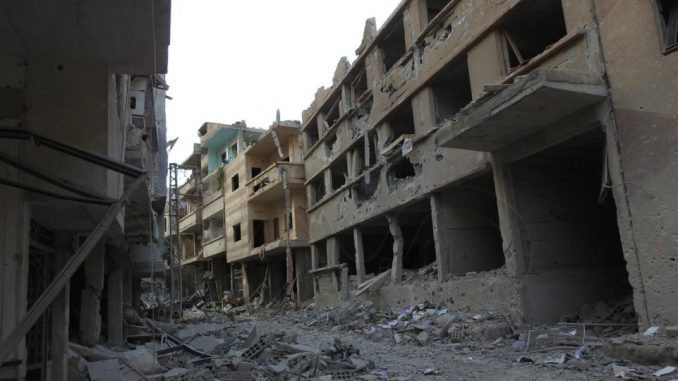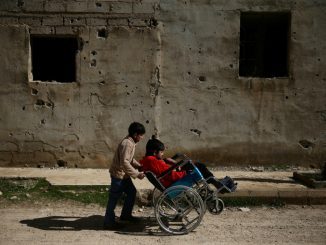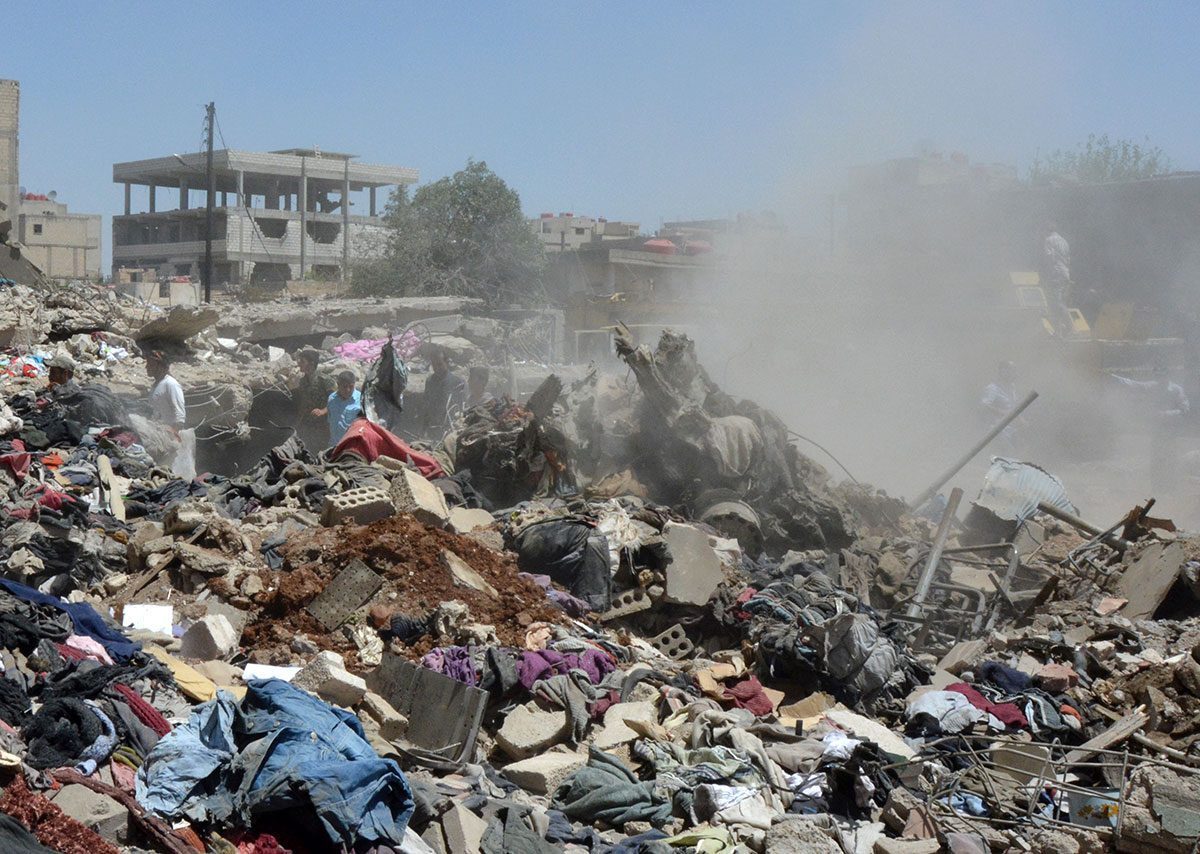
More than 5.5 million people have only minimal access to water supplies in the Damascus area due to the military operations of Assad regime around their water sources, as the clashes intensified threatening the fate of the water in Damascus.
Assad regime forces backed by Hezbollah and Shia militias have launched the attack on Wadi Barada valley since 22 December, with daily bombing and air raids on the area. The water in Damascus has been cut ever since.
Rebels say the army is seeking to recapture the area, where a major spring provides most of Damascus’s water supplies and which lies on a major supply route from Lebanon to the Syrian capital used by Hezbollah.
The daily clashes are associated with heavy shelling operations by the regime forces using tanks, artillery and mortar shells, and the launching missiles believed to be ground-to-ground, along with airstrikes by warplanes and the barrel bombs of the helicopters, which left tens casualties and injuries
The government assault has coincided with a severe water shortage in Damascus since December 22. Images from the valley’s Media Center indicate its Ain al-Fijeh spring and water processing facility have been destroyed in air strikes.
Rebels say the government bombed the water pumping station at the start of the campaign, while the government says rebels spoiled the water source with diesel fuel, forcing it to cut supplies to the capital.
Wadi Barada has been surrounded by government forces since mid-2015, but the siege was tightened in late December as the army piled on pressure seeking to secure a “reconciliation” deal.
It has won several of these deals in opposition areas around the capital, offering safe passage to surrendering rebels in return for retaking territory.
The opposition criticizes them as a “starve or surrender” tactic.
The opposition forces said they will not abandon their land, and called on the global powers in UN to save the water reserve and source.
#وادي_بردى #WadiBarada
صور لنبع #عين_الفيجة الذي يعتبر مصدر مياه الشرب الرئيسي لسكان العاصمة #دمشق قبل و بعد إستهدافه من قبل قوات النظام pic.twitter.com/9CRDAcHKH6— وادي بردى (@w_barada) December 26, 2016
#WadiBarada
(هام)
لحظة إلقاء البراميل المتفجرة على قرية #بسيمة في #وادي_بردى | 10 يناير 2017#أنقذوا_وادي_بردىhttps://t.co/TAYzEdFlqk— وادي بردى (@w_barada) January 11, 2017
The assault continues
The Syrian observatory of Human Rights said that the area witnessed on January 10 a surge in violence.
The Assad regime forces, backed by Hezbollah militia, continues their assault on the area and escalated the artillery and missile shelling on areas in the villages of Ain al-Fijah, Bsima and other areas in the valley, amid intense airstrikes that targeted the same places. At the same time, they tried to push on the ground against the rebel forces.
According to sources close to Assad regime, the 42nd Brigade of the 4th Mechanized Division, the Armed Forces, and Hezbollah began the day firing several anti-tank guided missiles (ATGM) on the besieged areas.
Following the barrage of missiles, the allied forces launched a ground attack north of Deir Maqran; this resulted in a series of intense firefights.
However, they weren’t able to advance on the ground, but the destruction in the besieged area and the residental buildings was huge.
At least one civilian was killed and 7 more others injured. In addition, the suffer of civilians increased due to the continued siege, the absence of medical and food materials, and cutting off the electricity and
#وادي_بردى #WadiBarada
لحظة إلقاء البراميل المتفجرة على قرية #بسيمة 10 يناير 2017
2 pic.twitter.com/dyLZ0l5Esd— وادي بردى (@w_barada) January 11, 2017
#الهيئة_الإعلامية_Barada
دمار منازل في #عين_الفيجة في #وادي_بردى إثر غارات الطيران الحربيhttps://t.co/UULYFgJyeP— وادي بردى (@w_barada) January 9, 2017
The UN has previously said that targeting water sources constitutes a war crime, but didn’t say which side did this.
Jan Egeland, the humanitarian adviser to the U.N. Syria envoy, said the damage to the water facilities as very bad and major repairs would be needed. But a U.N. request to send repair teams faces “a whole web of obstacles” including approvals from the Ministry of Foreign Affairs, the local governor’s office and security committee, and the two warring sides.
World Health Organization spokesman Tarik Jasarevic said that the repairs would take at least four days, probably longer.
Civil organizations in the area said they were ready to find a solution to the water crisis that doesn’t include the civilians’ displacement.
they also called the UN to check the rubble for pieces of evidence of Assad regime responsibility of the attacks.
” We reaffirm our readiness to facilitate the access of technical teams from the red cross and united nations to assess the situation around Ein al-Fijah and the facilities operating there, in addition to documenting the remanents of rockets and weapons used to bomb the spring,” they said in a statement.
“We are willing and ready to accompany the assessing and maintaining teams to Ein al-Fijah spring to facilitate resupplying fresh water.”
The Syrian crisis began as a peaceful demonstration against the injustice in Syria. Assad regime used to fire power and violence against the civilians and led to armed resistance. 450.000 Syrians lost their lives in the past five years according to UN estimates, and more than 12 million have lost their homes.



